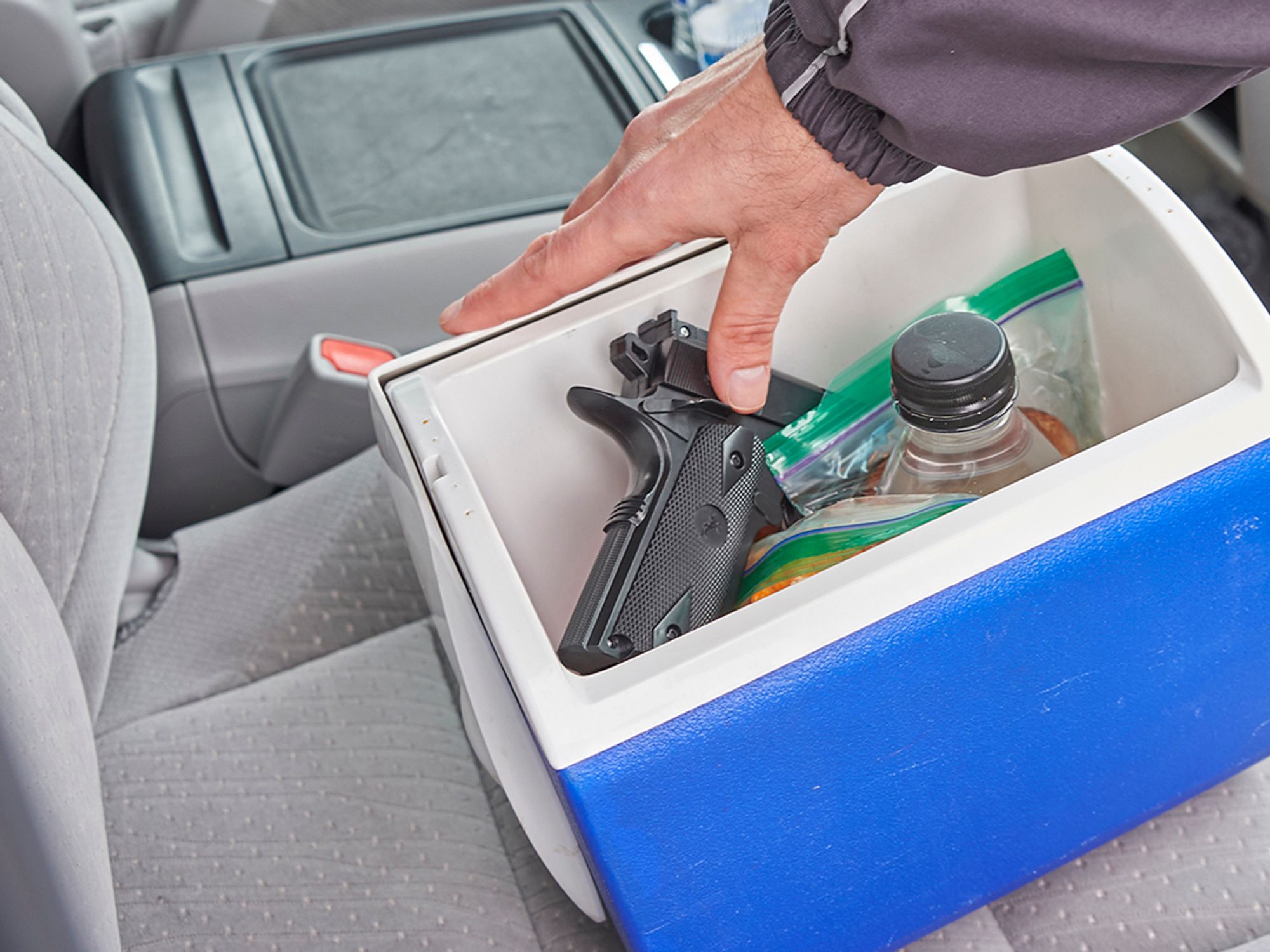Firearms in personal vehicles

- Although many states have adopted laws that allow employees to store a firearm in a personal vehicle, employers can still prohibit weapons on company property, including company vehicles.
- Signs may be posted outside of businesses open to the public that designate them as gun-free zones, although signs are not typically required under state law.
- An employer may establish a general weapons prohibition for most employees but choose to allow exceptions for specified groups.
Personal vehicles
Though employers can ban guns in the workplace, about half of U.S. states have adopted laws which allow employees to store a firearm in a personal vehicle, even if the vehicle is parked on company property. Generally, the vehicle must be locked, and the firearm should not be visible from outside the vehicle.
These laws often do not allow for policies that prohibit weapons in personal vehicles, though some state laws have exceptions for jails, schools, or businesses that provide natural gas or liquid petroleum.
Many of these laws prevent employers from asking whether an applicant or employee has a permit to carry a concealed weapon and may prohibit making hiring or firing decisions based on such information. A few states also prohibit employers from searching an employee’s vehicle for weapons, although searches may be conducted for other legitimate reasons (such as stolen property or drugs).
Company vehicles
Although these laws appear under state concealed carry statutes, they apply only to weapons in personal vehicles. The laws do not prevent employers from restricting weapons in company vehicles. In addition, employers may still prohibit weapons anywhere else on company property, including outdoor areas and buildings.
While employers may prohibit weapons in company vehicles, the provision for storing a firearm in a personal vehicle may extend to an employee’s use of that vehicle for business, and a prohibition against carrying weapons during work time can still be enforced. For example, a pizza delivery driver who uses a personal vehicle could not be prohibited from keeping a firearm in the vehicle while making deliveries, but could still be prohibited from carrying the weapon in a hip holster or pocket while making those deliveries.
Signs
If the business is open to the public, the employer may post a sign which informs the public that weapons are not permitted on the premises. Some jurisdictions require specific signs to be posted before prohibiting weapons. State laws may have guidelines for the size of the sign, the size of the letters used, or even require that specific language be used. If members of the public enter the premises in violation of the sign, they can be asked to leave, and refusal to do so is typically considered unlawful trespassing.
Some states designate certain types of private businesses to be gun-free zones, such as bars, day cares, and in states where it is legal, marijuana dispensaries.
In most states, employers are not required to post signs for the purpose of notifying employees about any restrictions, since employees who are familiar with company policies should already be aware of any restrictions. However, employers can certainly choose to post signs, and a few state laws (Illinois in particular) may require posting even if employees are made aware of the policy through other means. Acceptable signs in Illinois are available on the Illinois State Police Firearms Services Bureau website at ispfsb.com/Public/Signage.aspx.
Company policies concerning weapons
Some employers have asked if the company may prohibit weapons in general, but still allow specified individuals (such as company owners or members of management) to possess firearms on the premises. State laws do not actually require employers to prohibit weapons, and organizations that choose to do so should be able to create exceptions, as long as the policy is not discriminatory (e.g., based on gender, age, race, national origin, or other protected classes).
Employers commonly establish different policies or benefits for groups of employees. In the same way, an employer could establish a general weapons prohibition for most employees, but choose to allow exceptions for specified groups based on employment status or classification, such as management.
Because gun laws vary, it’s best to check which state and local laws are applicable to the specific business location to make sure policies and signs are compliant.
